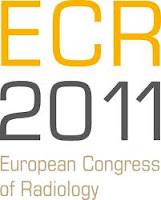 Top Developers invited to Vienna
Top Developers invited to Vienna
Featured in aycan’s April 2011 issue of “News and Views”
Coordinated by Prof. Hans-Christoph Becker and Dr. Anno Graser from Munich, this year’s Face-Off addressed the industry’s challenge to meet the growing demand for more powerful image-data manipulation. A number of tasks were given to all participants such as providing 3D volume-rendered images of aortic valves from a superior perspective, along with maximum, minimum, and average diameter measurements. Another task was to define a target lesion, using RECIST (Response Evaluation Criteria in Solid Tumors) 1.1 Guidelines, and performing comparison assessments of lesions on more than two time-points. Using its OsiriX PRO (a cost effective, FDA and CE certified, 64-bit fast, highly-functional workstation for conventional, multi-slice and other image reading), aycan completed all the tasks successfully and in a timely manner.
An ESR panel is currently assessing each company’s performance with findings to be released from the Society in the next few months. Final rankings will be based, in part, on the workstations ability to manage large volumes of data, and perform in a normal “reading room” setting as determined by expert users.
Along with aycan, the other companies that participated were GE Healthcare, Philips Healthcare, Siemens Healthcare, Terarecon, Visage Imaging, and Vital Images.
Past participants have faced-off on other key areas including the measurement of stenosis in CT angiography, and perfusion imaging and analysis of CT and PET images. Emerging technologies demonstrated in past Face-Off sessions have led to advanced tool development including tools for more efficient readings such as 3D viewing, automated polyp detection, and efficient length and volume measurements. This year, new computer aided diagnosis (detection) techniques demonstrated could be instrumental in the development of a more efficient and clinically relevant workflow.
ESR took place March 3rd through 7th in Vienna, Austria. Learn more about the event at http://www.myesr.org and read our next newsletter for results of the Face-Off.

 In welchen Lebensbereichen sind Gesundheits-App eine nützliche Hilfe, welche Unterstützungsangebote sind eher kritisch zu bewerten? Im Ratgeber Gesundheit fällt das Urteil der Redaktion eindeutig aus. Vorsorge-Helfer haben ihren Platz! Mit BMI-, Promille-, Vorsorge- und Impfrechnern oder z. B. mit einer nützlichen Vorsorge-Kamera, mit deren Hilfe Fotos vom Impfpass, vom Mutterpass, von der Versichertenkarte, vom Allergiker-Ausweis […]
In welchen Lebensbereichen sind Gesundheits-App eine nützliche Hilfe, welche Unterstützungsangebote sind eher kritisch zu bewerten? Im Ratgeber Gesundheit fällt das Urteil der Redaktion eindeutig aus. Vorsorge-Helfer haben ihren Platz! Mit BMI-, Promille-, Vorsorge- und Impfrechnern oder z. B. mit einer nützlichen Vorsorge-Kamera, mit deren Hilfe Fotos vom Impfpass, vom Mutterpass, von der Versichertenkarte, vom Allergiker-Ausweis […]
